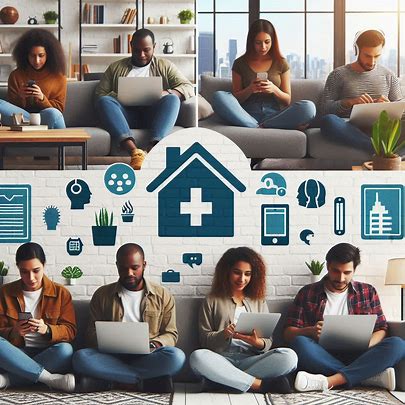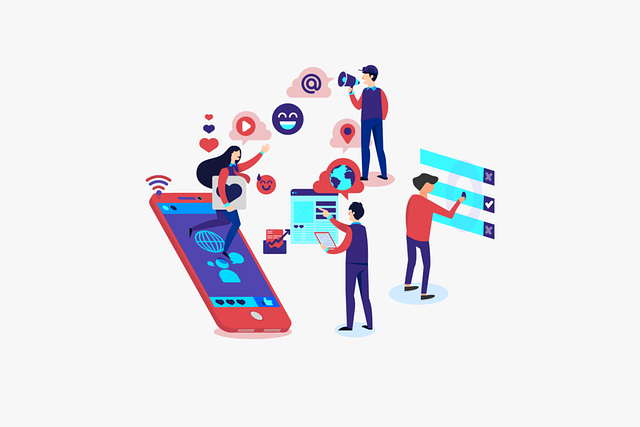Telehealth for Mental Health: Accessing Care Remotely in Chicago
One in five adults in the U.S. experiences mental health challenges each year. Yet, accessing care can feel overwhelming, especially in a bustling city like Chicago. Long commutes, packed schedules, and stigma often stand in the way. Fortunately, telehealth has emerged as a game-changer. It’s transforming how Chicagoans connect with mental health professionals, offering convenience and flexibility. This shift is breaking down barriers, making support more accessible than ever.
Digital platforms now allow individuals to seek therapy or psychiatric care from home. For example, the Chicago Psyciatrists (https://chicagopsychiatrists.com) provides virtual consultations with licensed professionals tailored to local needs. This is especially vital in Chicago, where diverse communities require culturally sensitive care. Telehealth bridges gaps for those in underserved neighborhoods or with mobility issues. It also offers a lifeline for busy professionals who struggle to fit in-person visits into their day.
Why Telehealth Works for Mental Health

Telehealth isn’t just convenient; it’s effective. Studies show virtual therapy can be as impactful as face-to-face sessions for conditions like anxiety, depression, and PTSD. Video calls, secure messaging, and phone sessions create a safe space for patients. What’s more, telehealth platforms often use encrypted systems to protect privacy. This reassures users that their personal information stays confidential. For Chicagoans, this means accessing high-quality care without leaving their neighborhood.
Another perk? Flexibility. Scheduling virtual appointments is easier, especially for those juggling work or family responsibilities. Evening or weekend sessions are often available, fitting into even the tightest schedules. Plus, telehealth eliminates the need for travel. No more battling Chicago’s notorious traffic or waiting for the L train in freezing winters. Care is just a click away.
Breaking the Stigma in Chicago
Mental health stigma persists, but telehealth is helping to dismantle it. Privacy is a big concern for many. Virtual sessions allow individuals to seek help discreetly, without visiting a clinic where they might feel exposed. This is particularly meaningful in tight-knit communities where anonymity matters. By offering a low-pressure way to start therapy, telehealth encourages more people to take that first step.
Chicago’s diverse population also benefits from telehealth’s reach. Providers can offer services in multiple languages or specialize in culturally specific care. For instance, therapists familiar with the challenges faced by Chicago’s Latino, Black, or LGBTQ+ communities can connect with clients remotely. This ensures care feels relevant and personal, fostering trust and better outcomes.
Challenges and Considerations
Of course, telehealth isn’t perfect. Reliable internet is a must, and not every Chicago household has access. Some neighborhoods, particularly on the South and West Sides, face digital divides. Additionally, not all mental health conditions are suited for virtual care. Severe cases, like those requiring in-person monitoring, may still need traditional visits. Still, telehealth providers are working to address these gaps by offering hybrid models or partnering with community organizations.
Cost is another factor. While many insurance plans now cover telehealth, not everyone has adequate coverage. Uninsured Chicagoans may face out-of-pocket expenses. However, some platforms offer sliding-scale fees or free initial consultations to ease the burden. It’s worth exploring options to find affordable care that fits your budget.
The Future of Mental Health Care in Chicago
Looking ahead, telehealth is set to grow. Chicago’s healthcare providers are investing in better platforms and training for virtual care. Innovations like AI-driven mental health apps and wearable devices are also on the horizon. These tools could complement therapy by tracking mood or stress levels, giving providers deeper insights. Imagine a future where your therapist gets real-time data to tailor your sessions!
Yet, the human connection remains at the heart of mental health care. Telehealth doesn’t replace empathy or understanding; it enhances access to it. For Chicagoans, this means more opportunities to prioritize well-being, no matter where they live or what challenges they face. So, why wait? If you’re struggling, a virtual session could be the first step toward feeling better. Mental health matters, and help is closer than you think.




